The Association of European Press for the Arab World (APEMA) and the Euro–Arab Center of Barcelona organized at the European Commission of Madrid a round table entitled “the role of the intellectual in the fight against the extremism” and presented the book the Mirage.
Within the framework of the European countryside against the extremism and terrorism initiated in 2015 parl‘ Alliance European of the Cities against the violent extremism, the APEMA and the Euro–Arab Center of Barcelona organized, on October 16th, 2018 with the seat of the European Commission in Madrid, a round table on the role of the intellectual in the fight against the extremism.
Political personalities, members of the diplomatic corps, writers as of the experts as regards fight against terrorism in Europe attended this conference, chaired by Nidal Shoukeir, President of the APEMA and animated by seven speakers.
It was about Amineh Kakabaveh, Member of parliament Swedish, of David Lucas Parrón, Senator and Vice–president of the Commission of the Foreign affairs to the Spanish Senate, of Pere Joan Pons, Member of parliament Spanish and Commission spokesman of the Foreign affairs at the Spanish Parliament, of Ana Belén Soage, Professeure of Political sciences in Suffolk University Madrid Campus, of the écrivaine Laila Karrouch, elected better auteure in Spain in 2004, of Mohamed Ahsissene, General secretary of the Commission of Communication of the Socialist party of Catalonia and Lars Åberg, Swedish writer and journalist.
The meeting was the occasion to present the Spanish version of the work the Mirage (El Espejismo) of Dr. Jamal Sanad Al Swaidi, Chief executive officer of the Center émirati of the Studies and of strategic Research with Abou Dhabi (ECSSR), delivers who is a intellectual experiment pionnier vis–a–vis the Islamic extremism.
The Swedish Deputy Amineh Kakabaveh stressed that all the European countries are confronted with the same problems vis–a–vis the extremism. Groups islamist, Salafist, surooris, are opposed to the human rights and of the woman, to fundamental freedoms of the citizens and the humanistic values.
In Sweden, the Muslim brothers even succeeded in being introduced into the political life.
These fundamentalist islamist groups exploit the religion by creating schools where girls and boys are separated and organize a washing of brain of the children and students.
She deplored the fact that in Sweden controls are too weak vis–a–vis the extremism.
It invited the governments to stop the financial support at the suspect schools which pose a threat for the company. It also called the countries which support the islamist groups, such as Qatar, Turkey and Iran, to cease their supports.
Amineh Kakabaveh finished his intervention while paying homage to the work the Mirage which, according to it, is “a intellectual experiment pionnier vis–a–vis the Islamic extremism”.
“I am originating in Iran”, she recalled, and, like much, a nonfundamentalist Muslim who wishes peace. “In Iran, where all is monk, the State, justice, the culture, education, my parents suffer from fundamentalism”. ‘Political Islam is ideological and does not respect the human one. It is this ideology which I criticize and not Islam”.
The Spanish Senator David Lucas Parrón notes that terrorism draws advantage of discriminations existing in the European countries. The problems are acuter in the cities. Economic factors and social exist but do not explain all.
“We did not understand yet why the young people, in particular the immigrants, are attracted by the groups extremists” it declared.
To understand the causes of the toughening, to pay attention to what occurred during the two previous centuries, to combat discriminations, school failure and youth unemployment by instituting a national plan of education are possible work axes
The prevention is paramount and several organizations work on this subject in Spain with good performances.
Many efforts are done to sensitize with the dangers of the extremism, to encourage with the tolerance, to communicate with all the segments of the company, in particular with the children of immigrants, while fighting against the discrimination whose they often are the subject.
The Spanish Deputy Pere Joan Pons, evoking Jean–Marie Le Pen, stresses that “the extremism is very widespread in Europe”. With the economic crisis which prevails in Europe, one witnesses a rise to power of the currents of far right. Spain, currently, undergoes a financial serious attack.
It evoked a social contract in a democracy with English which would make it possible to compensate for the inequalities and to humanize the relations between the citizens, while meeting with common values.
Insisting on the importance of education to sensitize with the dangers of the extremism, it estimated that it is useful to stop on the experiment enriching by the book the Mirage.
The Spanish professeure Anna Beilin Suag considers political Islam as a totalitarian organization in what it aims at controlling all the aspects of the daily life.
“The islamist groups have a political diary clearly based on an erroneous interpretation of the religion… the Muslim brothers believe in the democracy of the vote but they are against the equality in the company”, she specifies
She concluded her intervention while insisting on the fact that the islamist groups are not allies.
The Muslims in the world and the European companies which, in their majority, believe in the human rights should not be betrayed.
The intellectuals confronted with the extremism, such as Dr. Jamal Al–Swaidi with his book the Mirage, are majority in the Moslem companies and are the true allies to cope with the threat of the extremism.
The Swedish writer Lars Aberg underlined the difficulty in writing on subjects related to the islamist extremism because as of threats, of the fatwas and the dangers with which intellectual, writers and journalists can be confronted.
They are likely to be marked of islamophobie and attitude anti Islam.
Sweden is equipped little to fight against fundamentalism.
The religion is not a race, they are ideas. It is the same for fundamentalism, from where importance of the role of the intellectuals in the fight to defend the democracy.
It is important to differentiate the Muslims from these fundamentalist organizations which develop, in particular in schools. He paid homage to the book the Mirage, rich experiment which helps the Western companies to identify the danger of the islamist groups and to understand their ideologies extremists in a scientific way.
The écrivaine Catalan Leila Karrouch described his experiment.
Morrocan woman made at Barcelona at the eight years age, it had problems of integration. She tells in her books her own story and written on her private life.
Stressing the importance of the writing in the fight against the extremism, it stopped on the scientific and teaching style book the Mirage which allows the reader an easy comprehension of the phenomenon which is the extremism, style which will contribute to its diffusion on a world level.
Finally Mohammed Ahsissene, President of the Euro–Arab Center in Barcelona, declared that “the intellectual war against the extremism is less important than the military war”.
The efforts of the intellectuals to fight against the islamist ones have, according to him, more importance than the military confrontations, especially since the vast propagation of the ideologies extremists in the European companies.
The ideological questions take precedence over the economic aspects.
It stressed that the choice of the book the Mirage as example to be discussed at the time of this table–round was a recommendation of certain members of Parliament and European political officials who agreed on the value of this work, delivers international distinguished within the framework from the fight against the extremism and terrorism, for the safeguarding of the human values.
The questions and answers and the interviews by the press of the speakers closed the conference.
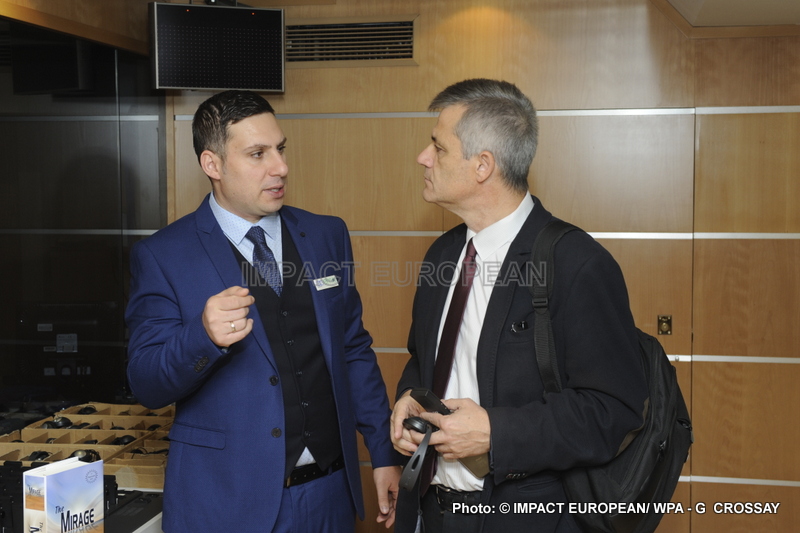
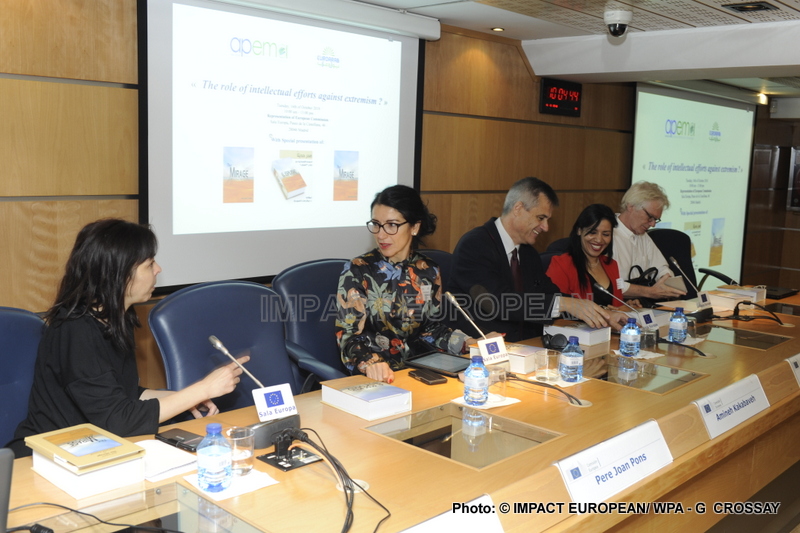
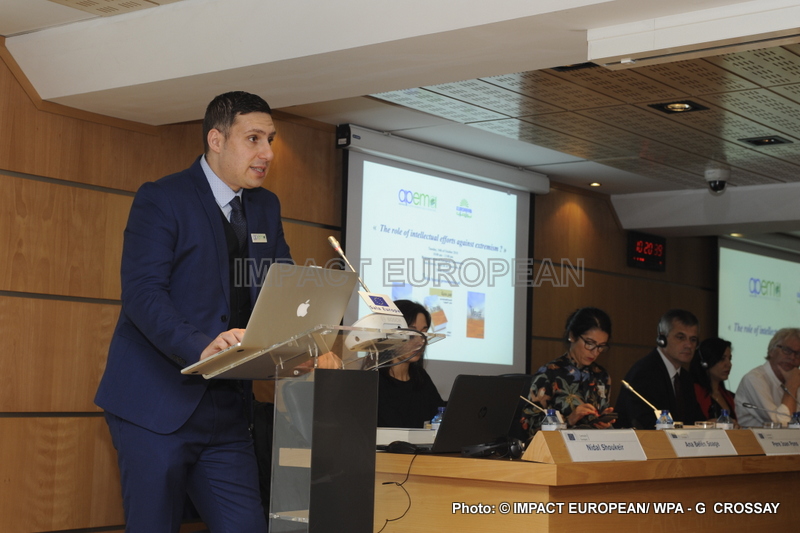
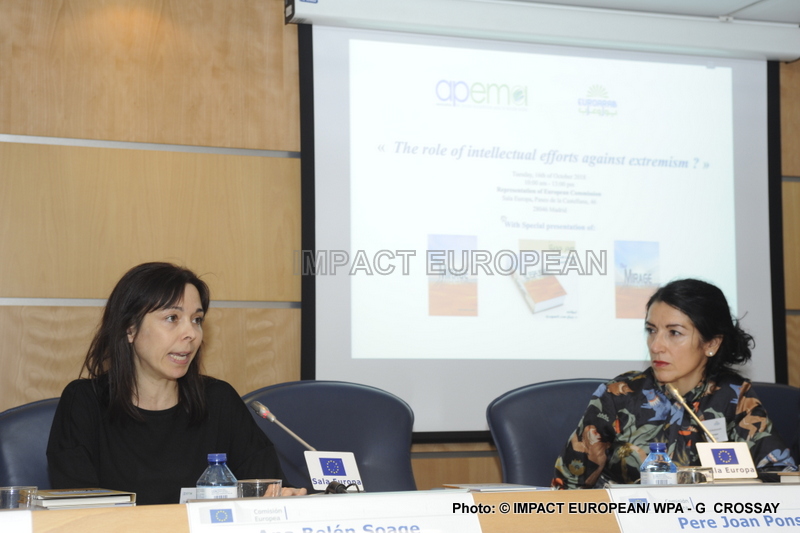
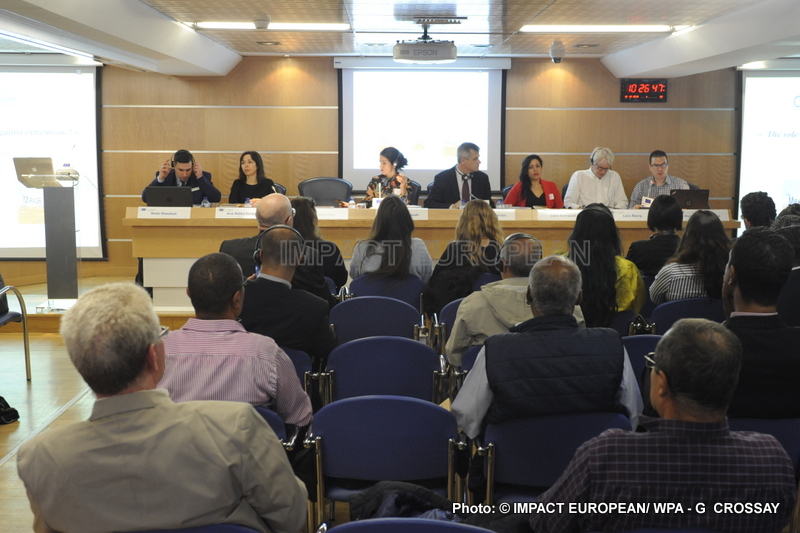
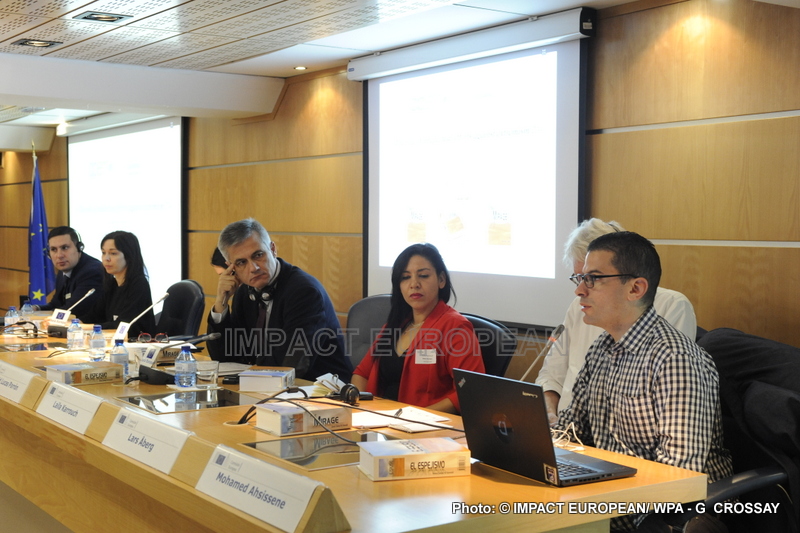
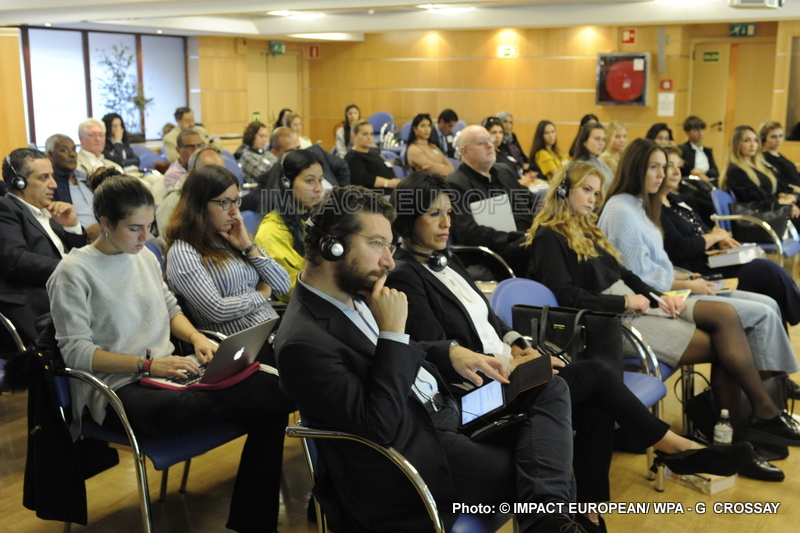
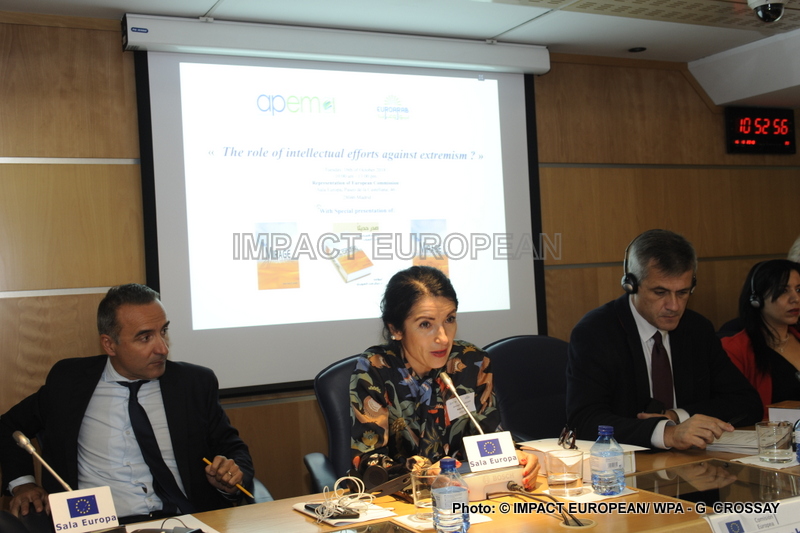
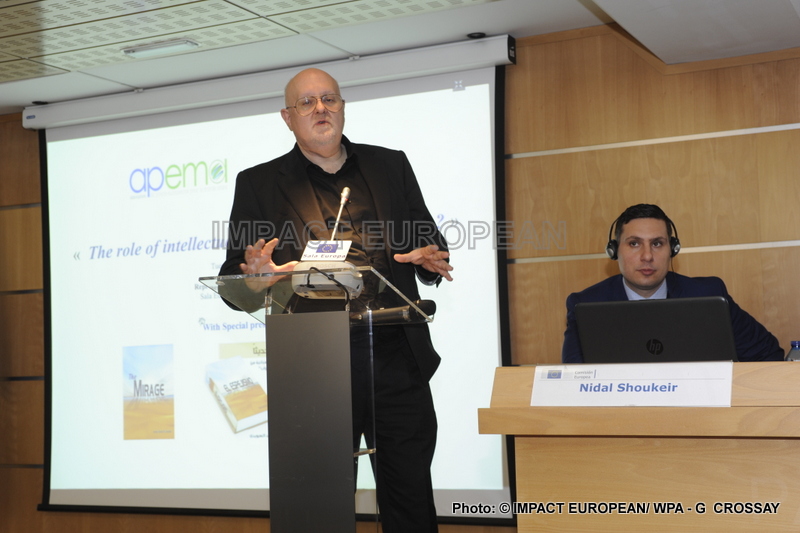
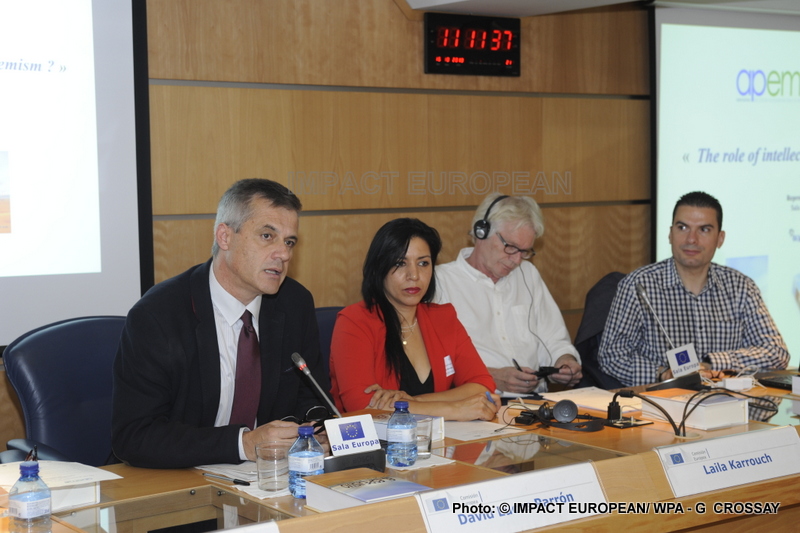
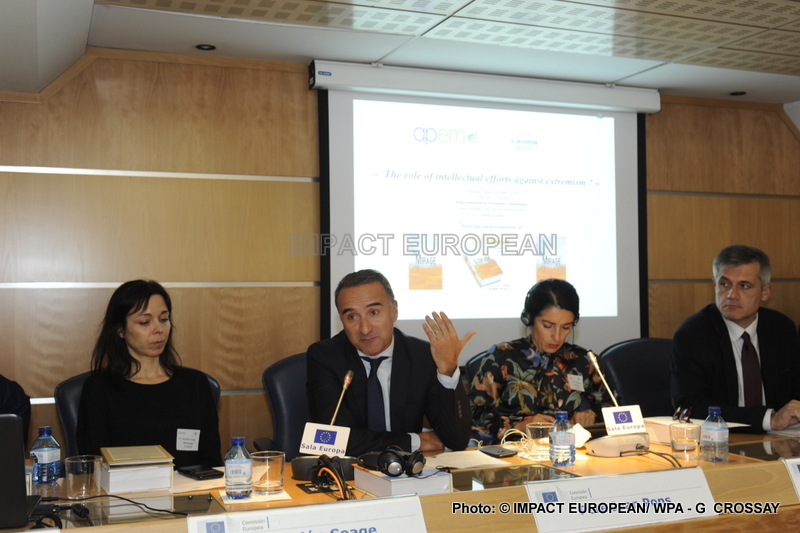
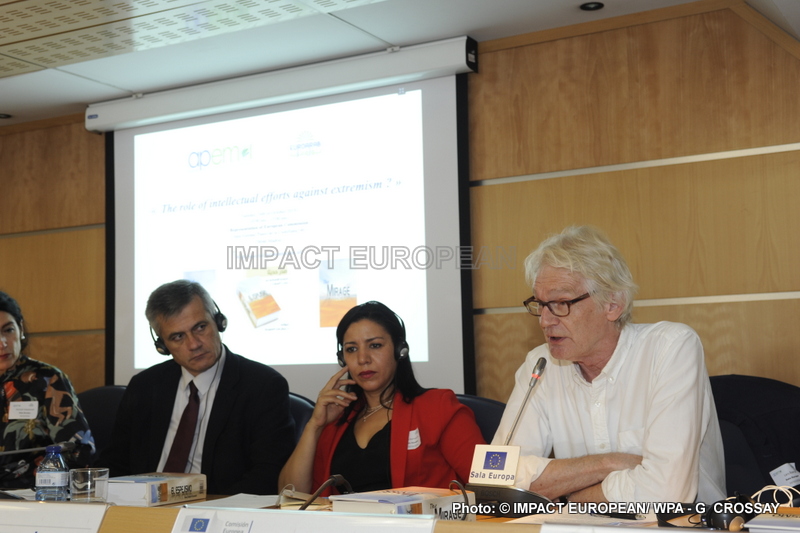
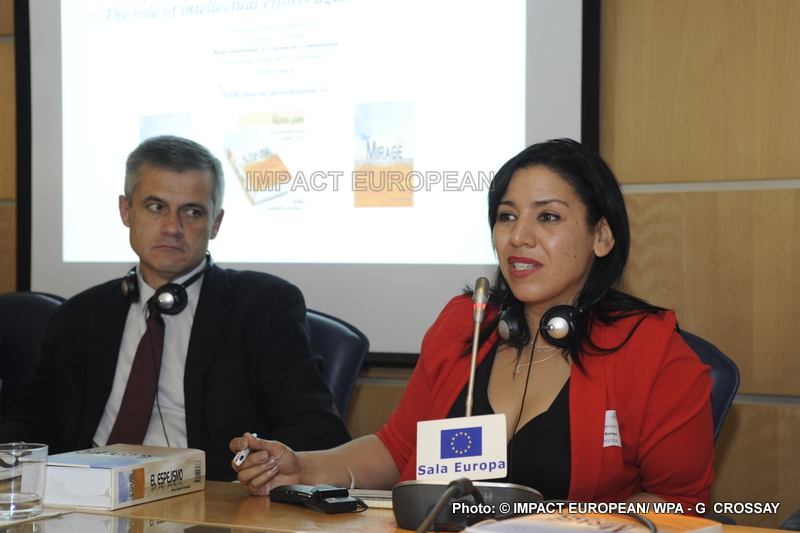
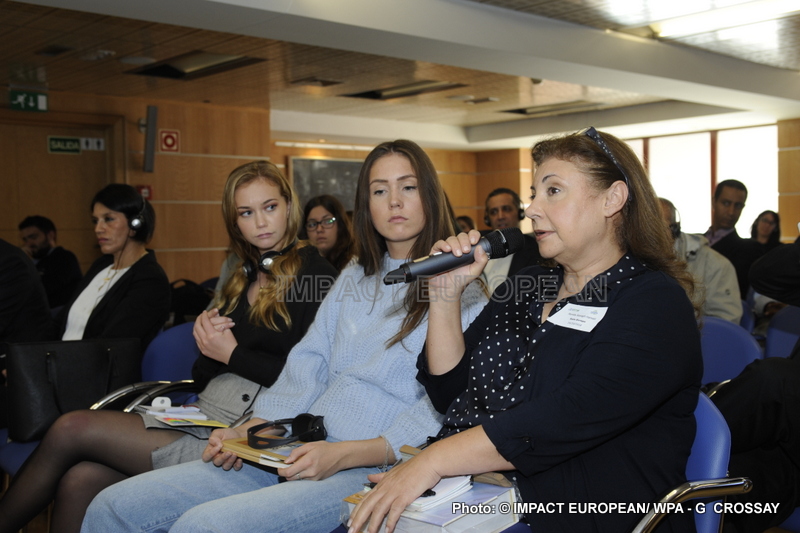
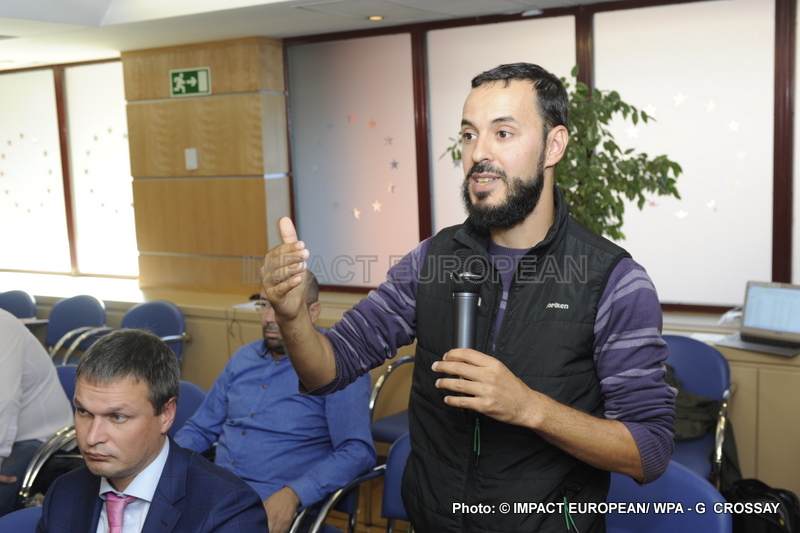
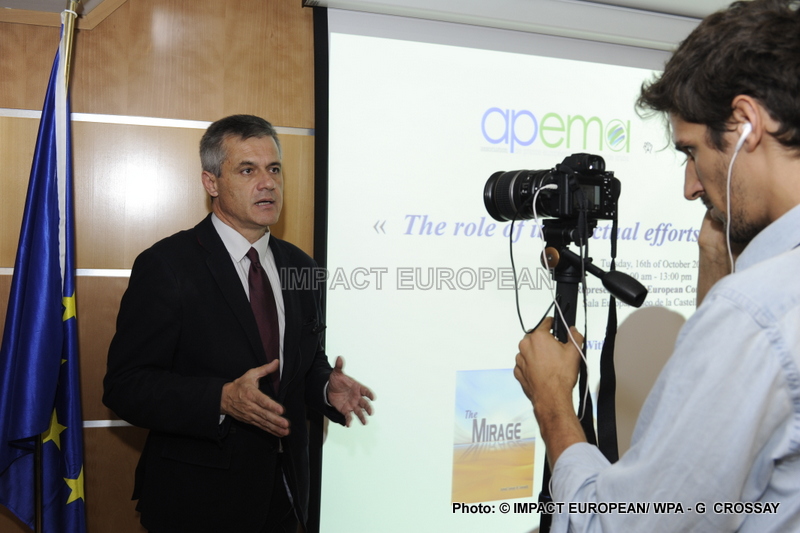
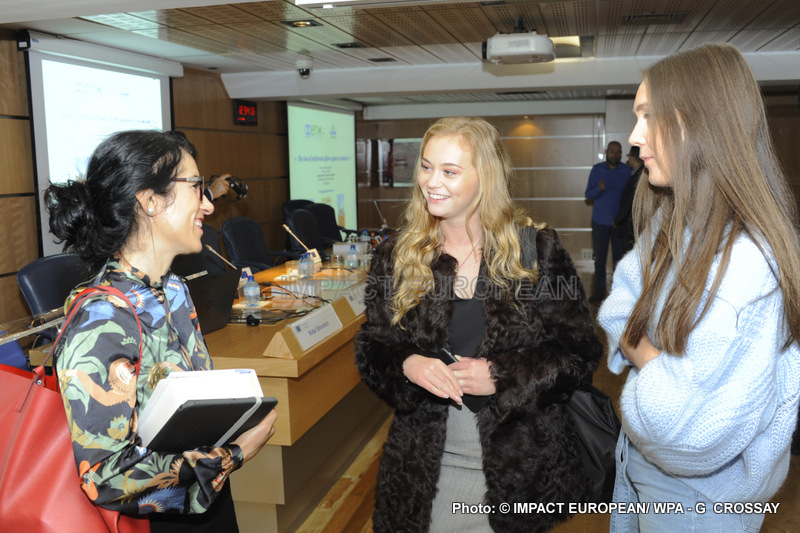
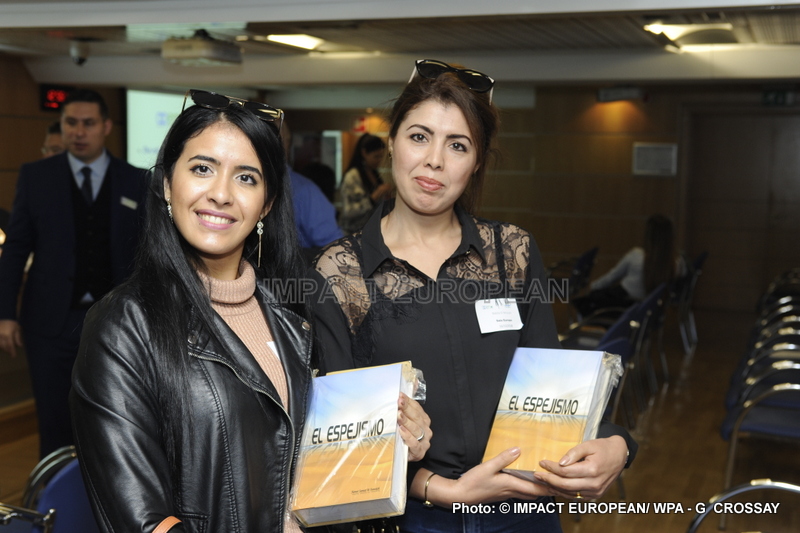
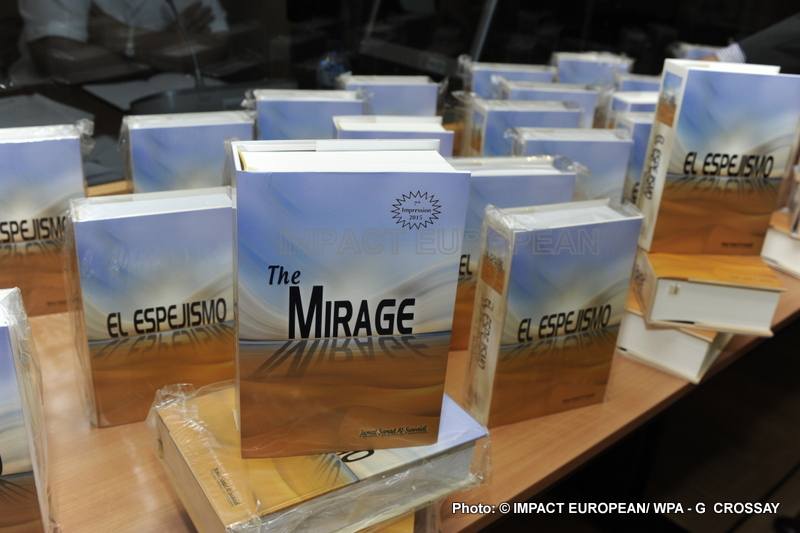
More Stories
Élysée: tripartite meeting between Trump, Zelensky and Macron
GREEN SANTA CLAUS ARE BACK
Salon du Chocolat: the International Trophy of French Pastry Chocolaterie and the Master of Pain au Chocolat